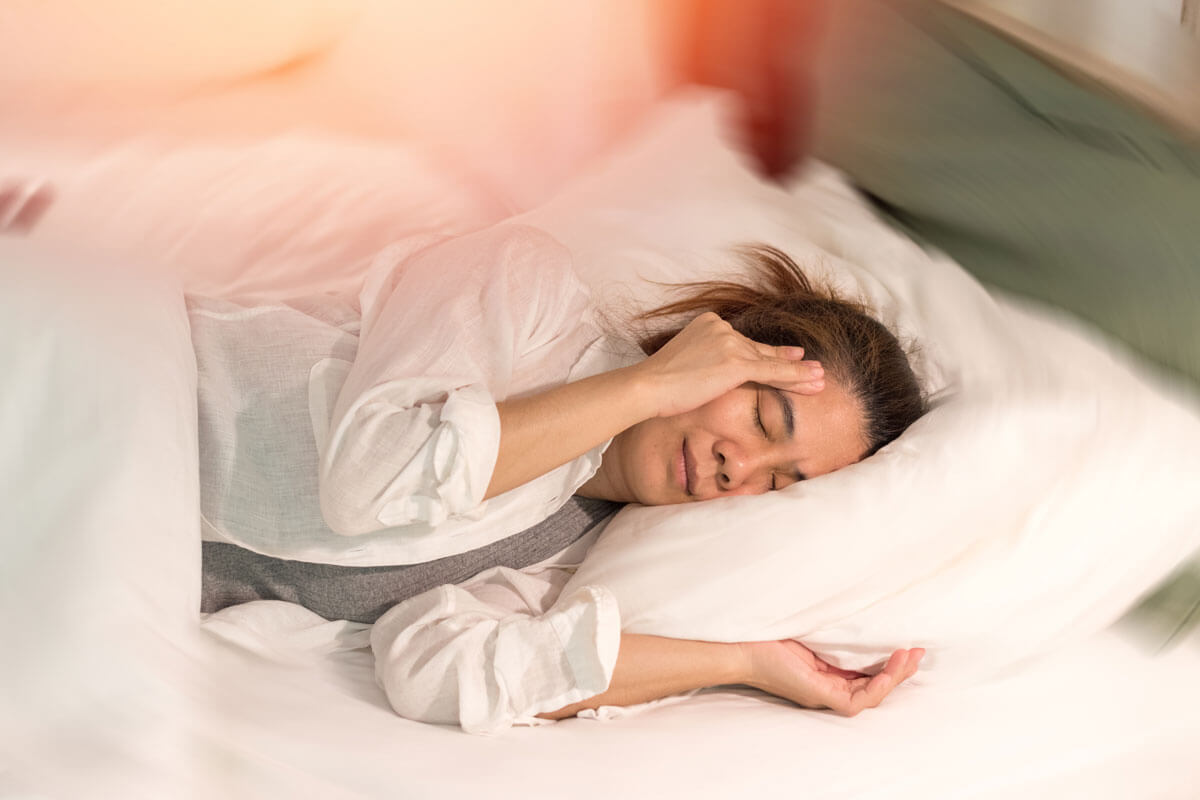If you struggle with your hearing, you know that it affects every aspect of your life. When it comes to disrupted sleep due to hearing loss, the struggle can be doubly exhausting.
Untreated hearing loss that prevents restful sleep can impact your quality of life and take a toll on your mental and physical health. Unfortunately, the relationship between sleep problems and hearing loss doesn’t get the attention it deserves. This leaves many hearing loss patients struggling to rest at night.
Going back to the basics is essential when you’re struggling with your hearing. Here’s what you need to know about how hearing loss affects sleep.
Common Sleep Issues Linked to Hearing Loss
It’s hard to fall asleep and stay asleep with hearing conditions like tinnitus, which causes ringing in your ears. The constant noise might keep you up for hours, and the stress and anxiety that hearing problems cause can make it difficult to drift off comfortably and stay asleep.
Many hearing loss patients are faced with the stress of the day’s communication struggles while they try to sleep at night. Hearing issues can interfere with conversations and social connections, especially if you don’t have an assistive listening device or hearing aids to help you out. It’s easy to feel isolated and out of place when you struggle to hear.
On top of being stressed and disconnected from others, you might be fatigued from the effort and mental load of hearing loss.
How are brain fatigue and hearing loss connected? Your brain has to work harder to process and interpret sounds when your auditory system doesn’t transmit them properly. Just managing your day-to-day life with hearing loss can exhaust you and contribute to restlessness at night.
The Science Behind Hearing and Sleep
Surprisingly, your brain continues to process sounds while you’re asleep. This is why your dreaded morning alarm works to get you up and moving.
Continuous auditory processing is likely rooted in human evolution. Millions of years ago, your ancestors’ lives depended on waking up to concerning sounds in order to fight off predators. If you struggle with hearing loss, though, your auditory system can’t do its job properly.
During restful sleep, your brain benefits from some level of white noise to soothe you and mask disruptive noises. If you can’t process sounds below a certain decibel level, you might struggle to fall asleep and stay asleep. Louder noises might startle you awake more easily than they do people without hearing loss.
Hearing problems can and do disrupt your natural sleep cycles. If hearing loss is new to you, this change might feel jarring and upsetting. Your body operates on a 24-hour cycle known as a circadian rhythm, and sleep is an essential part of this cycle.
Without enough sleep, your cognition (mental processing) is affected. Sleep deprivation can cause faster cognitive decline in individuals with hearing loss. This decline may manifest as memory problems, poor mental health, attention span issues, and other troubling side effects.
Poor sleep might also raise your risk of developing hearing problems in the first place. When you sleep, your body repairs and regenerates important cells and tissues. If you regularly get fewer than seven to nine hours of sleep per night, it could compromise your ear health, leading to hearing damage.
Tips for Better Sleep With Hearing Loss
Sleep is king when it comes to prioritizing your hearing health. Not sure where to start? Here are some tips and tricks to help you get plenty of shut-eye each night.
Sleep hygiene refers to the habits and routines you implement around bedtime. For folks with hearing loss, good sleep hygiene is even more important for ensuring you get restful, deep sleep.
Healthy sleep habits include:
- Turning off screens one to two hours before bedtime
- Using stress management techniques
- Sticking to a regular sleep schedule
- Making your room dark and cool
- Exercising during the day
- Avoiding sugar and junk food before bed
- Cutting out caffeine by midday
- Limiting alcohol intake
All of these sleep hygiene practices encourage your body and brain to relax and unwind before bed. Don’t worry about being perfect. Implementing even a few of these habits can drastically improve your sleep quality.
If you struggle with both tinnitus and sleep, use a white noise machine or play sound therapy videos at night. This background noise may distract your brain from the constant ringing and high-pitched noises in your ears and help you fall asleep.
You can reduce mental fatigue from hearing loss by using helpful tools during the day, like assistive listening devices and hearing aids. Anything that helps your mind process sounds more easily is likely to benefit your sleep.
You should also take breaks from noisy environments. For people with hearing loss, loud environments can be overstimulating and stressful. Give your ears and brain a break every 30 minutes or so.
Make your bedroom your stress-free oasis by implementing relaxing routines. Yoga, meditation, and journaling are all great stress relief routines to try for better sleep.
When to See a Specialist
If your hearing problems are preventing you from sleeping, you may need professional help.
Some warning signs to be aware of include:
- Daytime grogginess and fatigue
- Frequent illness
- Irritability
- Anxiety
- Depression
- Insomnia symptoms
- Poor focus and concentration
- Memory problems
- Chronic mental fatigue
The professional audiologists at Happy Ears Hearing Center can help diagnose and treat your hearing problems. We offer solutions like hearing aids and tinnitus management, which includes sound therapy.
Early intervention is key — don’t wait to address your hearing concerns. Sleep deprivation is serious and can cause significant health problems down the road.
Reclaim Restful Nights
Hearing loss, sleep disorders, and health problems are all closely linked. It’s time to take control of your hearing and sleep health. You deserve to feel and perform your best.
Now is the time to address your hearing loss and sleep problems with the help of Happy Ears Hearing Center. Schedule an appointment with one of our audiologists today.
 Donate by November 25, 2024
Donate by November 25, 2024 

